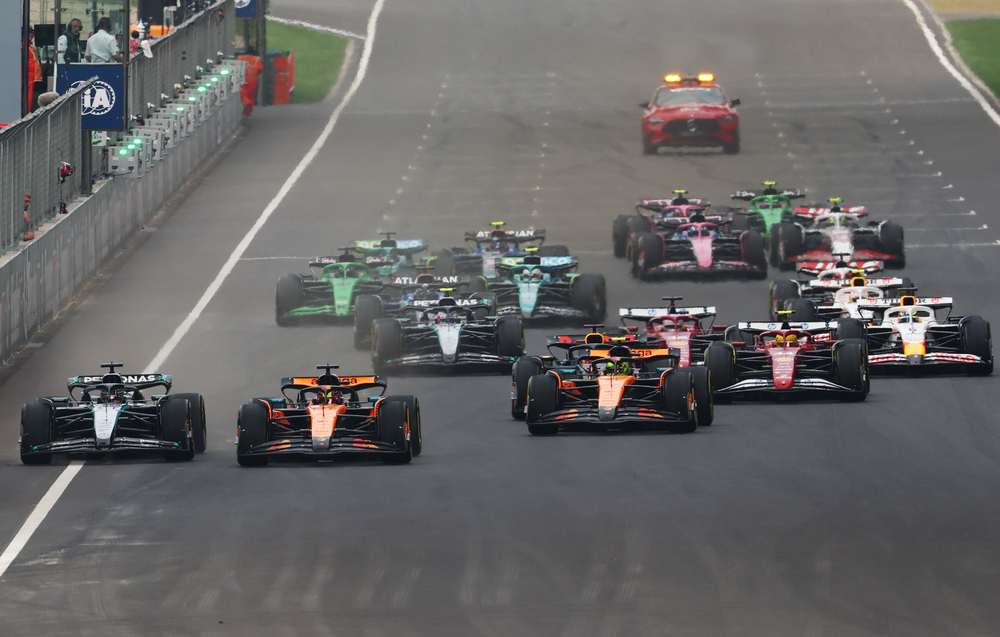Following the dismissed appeal against Red Bull team principal Christian Horner, Formula 1 finds itself at a critical juncture. The sport’s handling of this high-profile case has exposed systemic issues that continue to tarnish the world of motorsport. With the outcome now public—Horner’s appeal denied and the grievance dismissed—questions surrounding transparency, accountability, and workplace culture in F1 are more pressing than ever.
Formula One has captivated audiences for over five decades, evolving from a niche motorsport into a global phenomenon. Its legendary races, charismatic drivers, and pursuit of speed have attracted a devoted following. However, recent years have seen a dramatic shift in the demographic makeup of F1’s fan base, largely driven by a surge of interest from women and younger fans. This new wave of enthusiasm has brought fresh energy and perspectives to the sport but has also highlighted more profound issues within the F1 community—issues that the sport must address directly.
F1 CEO Stefano Domenicali disclosed in November 2022 that 40% of global F1 fans were women, reflecting an 8% increase since 2017. This significant growth is not just a statistical curiosity; it indicates the dynamic ways in which F1 has been embraced by a younger, more diverse audience. Social media platforms like TikTok and Tumblr have become hubs for the F1 fandom, where many young women create content ranging from tributes to drivers to detailed analyses of car mechanics and team strategies. Podcasts dissecting everything from race politics to the intricacies of tyre management have also flourished, providing fans with new ways to engage with the sport.
The role of Liberty Media, the American company that acquired Formula 1 in 2016 for $4.4 billion, is pivotal in this transformation. The previous ownership struggled to modernise the sport, largely ignoring the need to attract a younger audience even as its traditional viewership declined by 40% between 2008 and 2016. Liberty Media’s approach marked a significant departure. They recognised that reviving F1’s dwindling popularity, particularly in the United States, required appealing to a new generation of fans.
One of Liberty Media’s most significant decisions was to abolish the outdated and sexist practice of grid girls, a move that resonated strongly with the sport’s increasingly diverse fanbase. They also relaxed the strict social media restrictions previously imposed on drivers and teams, allowing them to engage more freely with fans. This shift has transformed F1 into one of the most popular sports across digital platforms, where drivers have become not just athletes but global celebrities.
The surge in popularity, often credited to Netflix’s “Drive to Survive” series, which debuted in 2019, has undeniably played a role in this transformation. The show provided a behind-the-scenes look at the lives of drivers and the inner workings of teams, making F1 accessible and relatable to a broader audience. The series humanised the sport’s stars, showcasing their personalities, rivalries, and the intense pressures they face. This narrative approach has been particularly appealing to younger viewers, who are drawn to the drama and personalities as much as the on-track action.
However, as F1 celebrates its newfound popularity, the handling of Christian Horner’s recent grievance case reveals a more troubling aspect of the sport’s inner workings. The lack of transparency surrounding both the initial investigation and the subsequent appeal process is deeply concerning. Red Bull’s brief statement, issued on 8 August, confirmed that the appeal had been denied, and the grievance dismissed but provided little in the way of details. “The company respects the privacy of all its employees and will not be making further public comment on this matter at the time,” the statement concluded. While protecting employee privacy is crucial, this veil of secrecy only serves to fuel speculation and mistrust.
Laura Winter’s powerful statement from the Saudi Arabian paddock, “We are here to stay, and we are right where we belong,” now carries a bittersweet resonance. While women in F1 continue to fight for their rightful place, the sport’s leadership seems content to shroud critical matters in secrecy. This approach is not just a disservice to the individuals involved; it undermines public confidence in the sport’s ability to address sensitive issues fairly and comprehensively.
Perhaps most concerning is the potential chilling effect this outcome may have on other employees within the F1 ecosystem. The dismissal of the appeal, coupled with reports of the complainant’s suspension, sends a troubling message. It raises the spectre of professional repercussions for those who dare to speak out against perceived improprieties, especially when they involve high-ranking officials. This case has brought into sharp focus the broader concerns about workplace culture within F1 teams. The sport’s historically male-dominated environment, as highlighted by Nicole Sievers of Two Girls 1 Formula, creates unique pressures for women working within these structures. The handling of this case does little to alleviate fears that the sport is ill-equipped to address issues of inappropriate behaviour effectively.
Here are the quotes from Nicole Sievers, co-founder of Two Girls 1 Formula, that were included in the original article:
“In a sport that’s so heavily male-dominated, there are also likely pressures on women that are working for these teams. That’s a really tough position to be in, especially when you do see the overwhelming majority of the ruling class of F1. We’ve seen that play out historically. Money just breeds power, which breeds a loss of a feeling of consequence.”
Lewis Hamilton’s earlier remarks on the “lack of transparency and accountability” in F1 now seem prophetic. The seven-time world champion has long been an advocate for greater openness within the sport, calling for a shift in how F1 addresses such matters. However, his calls have gone largely unheeded, as evidenced by the opaque nature of the Horner grievance process. This lack of transparency damages the sport’s reputation and perpetuates a culture where grievances can be dismissed without meaningful scrutiny.
As Formula 1 grapples with the dismissal of the appeal against Christian Horner, the sport finds itself at a critical juncture. The lack of transparency surrounding this case has opened a Pandora’s box of ethical questions that the F1 community cannot ignore.
The surge in female fans and their growing influence on the sport’s culture represents a significant opportunity for change. However, the handling of this grievance threatens to undermine the progress made in diversifying and modernising Formula 1. The potential chilling effect on other employees coming forward with complaints, as well as the ongoing concerns about the sport’s workplace culture, must be addressed head-on.
Moving forward, it is clear that Formula 1’s leadership must reckon with the competing demands of protecting employee privacy and ensuring public accountability. Vague statements and closed-door investigations will no longer suffice in an era where fans, particularly women, are increasingly invested in the sport’s ethical foundations.
The path ahead is not an easy one, but the stakes have never been higher. Formula 1 must demonstrate that its commitment to inclusivity and respect for all extends beyond marketing slogans and PR campaigns. True progress will require a fundamental shift in how the sport handles sensitive matters, communicates with its stakeholders, and cultivates an environment where everyone feels empowered to speak up.
The dismissal of this appeal may have brought legal closure, but the quest for a more transparent and accountable Formula 1 continues. The sport’s leaders must rise to the challenge, lest they risk irreparably damaging the trust of its growing, diverse fanbase. The future of Formula 1 hangs in the balance, and the time for meaningful change is now.





